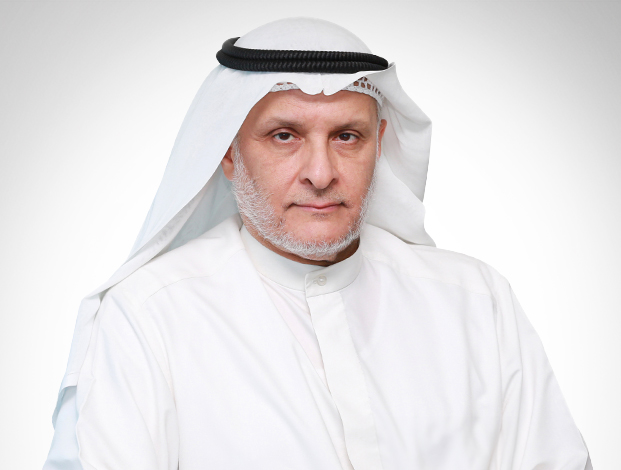An advocate for Uganda’s private sector

Barbara Mulwana, chairman of the Presidential CEO Forum (PCF), talks to The Energy Year about the role of the PCF in strengthening Uganda’s private sector and advocating for an improved business climate. The PCF is a presidential initiative aimed at promoting private-sector involvement in all sectors of Uganda’s economy.
The PCF is a presidential initiative that was founded in 2020 in order to support economic development by promoting and harnessing private-sector involvement in all sectors and existing local and international initiatives.
Our goal is to drive national productivity and inclusion, advocating for appropriate legislation, practices and policies that eliminate bottlenecks that hamper economic development. In essence, we are a leading forum that champions private-sector entrepreneurs so that they can actively participate in economic activities that foster private-sector development.
In the nascent oil and gas sector, a significant focus is upon the promotion and stimulation of national content and the important benefits that can permeate the entire Ugandan economy thanks to local participation. We are the voice of the private sector in the social and economic conversation – so that we can co-operate directly with government in promoting sound strategies for industrialisation, leadership and governance. We champion the enhancement of competitiveness through policy encouragement.
We also assist and co-ordinate a growing portfolio of private-sector-led empowerment programmes, which include family business initiatives, co-operatives or wealth creation and entrepreneurship trainings.
Which are the PCF’s key focus areas?
We are guided by the idea of “Uganda First,” and by the strategic goals included in the Vision 2040 programme. In that respect, we understand that the attainment of economic development objectives can only come thanks to enhanced collaboration with the private sector in areas such as policy implementation, innovation and knowledge transfer.
A key element of our mission is to advocate for an improved business climate that can effectively contribute to economic growth, job creation, industrialisation, value addition, human resources development and innovation. Promotion of national content and industrialisation are very important factors, as well as policy formulation and effective leadership development.
Which are the challenges that affect the Ugandan private sector the most?
The first major gap is the cost of capital. The PCF is advocating for the government to continue to increase funding to the Uganda Development Bank. Another important issue is the cost of electricity. On this topic, we support government initiatives that are aimed at reducing the unit cost of electricity to USD 0.05, and we also advocate for direct access to electricity by the manufacturers.
The cost of transport is also a very important issue, which can be resolved by a revamp of the railway and water transport systems so as to reduce logistical costs. This could be attained via a public-private partnership. Skilled human resources also pose a challenge, which should be addressed by fast-tracking an employer-led skills development system. Finally, access to markets is also a crucial aspect that can drive industrialisation efforts in Uganda.
What are PCF’s key objectives?
In the first place, we want to be able to provide technical assistance and capacity building to the private and informal sectors in order for them to achieve wealth creation. As well, by promoting industrialisation and the development of our national private sector, we aim to improve Uganda’s human resources development processes and drive national prosperity.
Another key objective for us is to identify and nurture the most vibrant sectors of Uganda’s private economy so that many more skills-oriented jobs are created, which in turn will increase disposable income and purchasing power.
Finally, we want to provide an effective platform that advocates for beneficial policies that can assist the president towards his goals included in the Vision 2040 strategy.
Recent Posts
Angola’s power generation and electrification ambitions
Angola is working hard to increase its power generation capacity by boosting hydro and solar energy, as well as linking… Read More
Angola’s Sonamet delivers on subsea fabrication demand
Domingos Augusto, CEO of Sonamet, talks to The Energy Year about the company’s performance in 2023, its key projects for… Read More
BNA’s economic expectations for Angola
Manuel António Tiago Dias, governor of the National Bank of Angola (BNA), talks to The Energy Year about the bank’s… Read More
Innovation ups production in Kuwait’s upstream
Tareq Qaddumi, CEO of SPETCO, talks to The Energy Year about developing novel solutions for gas processing and the company’s… Read More
Trinidad and Tobago’s downstream potential
Despite the global energy transition, Trinidad and Tobago’s downstream sector, centred at the Point Lisas Industrial Estate, is thriving and… Read More
Kuwait’s Joint Operations shift into a higher gear
Khaled Nayef Al Otaibi, CEO of Kuwait Gulf Oil Company (KGOC), talks to The Energy Year about the challenge of… Read More
 Uganda
Uganda 




